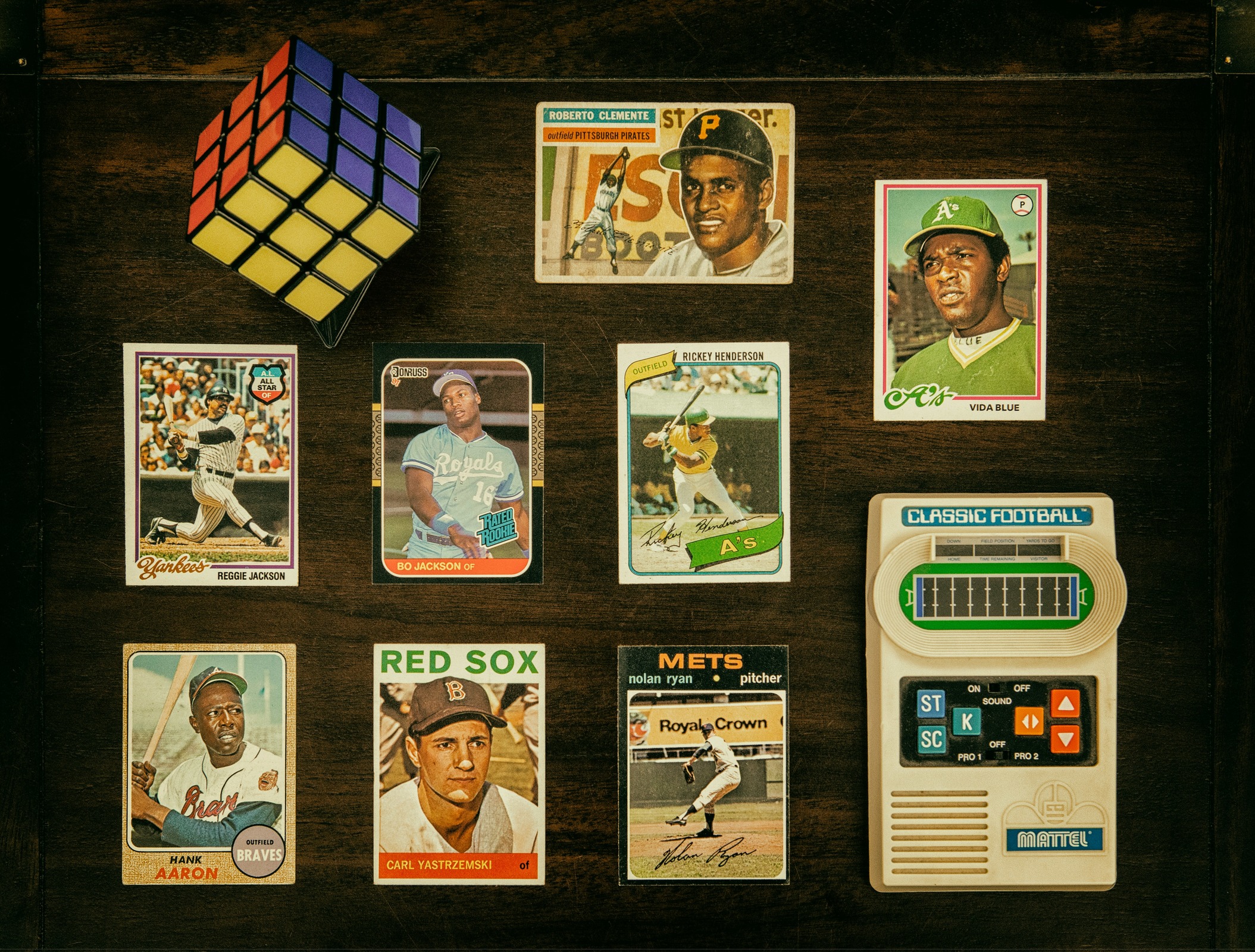Pricing baseball cards has changed dramatically throughout the decades. Growing up in the 1980s and 90s, we would go into our local card shop and pick up the latest Beckett and Tuff Stuff to see how much our cards were worth. It all changed, though, with the advent of eBay. No longer would we wait monthly for new price guides to be released, all we had to do was see the latest sold listings on eBay.
Now, there are numerous ways to discover how much cards and your collection is worth. Since sports cards are a billion-dollar industry, pricing fairly and accurately matters. But, which price guides are the best to use? HobbyListings has compiled a list of the top price guides collectors and sellers should use today.

The List: Best Baseball Card Price Guides
1. Beckett.com
The most well-known price guide started in 1979 after Dr. James Beckett published his first Sport Americana Baseball Card Price Guide. Five years later in 1984, Beckett Baseball magazine was launched. For decades, millions of collectors have used Beckett to look up how much cards are worth. Currently, Beckett.com offers subscription services for its price guides and collectors can organize and catalog their collections in Beckett’s database. It also offers collectors to search by category, like baseball, basketball, football and hockey.
2. eBay
The online auction and shopping website changed the way sports cards are sold. No longer did people have to search their local card shops or sports card shows, they could just hop on eBay to find the card they wanted. eBay is also used to see the most recent sold listings to accurately price their cards.
3. 130point.com
Laine Pearce originally created 130point.com after realizing there was no database to see which redemptions had or hadn’t been fulfilled. Then it showed the latest eBay sold listings. Now, on top of eBay, it shows the latest sales for Goldin, Heritage Auctions, My Slabs, PWCC and Pristine Auction.
4. PSA Price Guide
Not only is PSA used for grading cards, it’s also a trusted source of pricing cards. PSA offers a price guide to search for PSA-certified collectibles. It also offers collectors to search by category.
5. Card Ladder
Card Ladder is a website and app collectors can use to track the fluctuating prices of their collection. It uses sales data from 13 marketplaces and PSA, BGS, and SGC population reports. A subscription runs $15 monthly.
6. Market Movers
Market Movers calls itself “the hobby’s most powerful price guide and collection tracking platform.” It offers collection tracking, price movements and price alerts. A service subscription starts at $9.99 per month.
7. Card Hedge
Collectors can search sold listings on Card Hedge through eBay, PWCC, My Slabs and Alt. Card Hedge allows collectors to look up prices and research, manage and track their collection. Subscriptions start at $14.99 monthly.
Personally, I use Beckett.com and 130point.com to price cards. Since I catalog my baseball card collection, I have a subscription with Beckett.com to organize them in a database. It gives me a better understanding of what I have in my collection and how much my total collection is worth.

Appreciating the Worth of Your Collection
- Financial Implications: Knowing the value of your sports card collection aids in financial planning. Whether for insurance purposes or future sales, understanding its worth allows you to protect your investment.
- Tracking Market Trends: The sports card market is dynamic, influenced by player performances, market trends, and historical significance. Pricing your collection helps you monitor fluctuations, aiding in decision-making regarding buying, selling, or holding onto specific cards.
- Determining Authenticity and Condition: Appraising your collection involves assessing authenticity and condition. Identifying counterfeit cards or recognizing damage helps maintain the collection’s integrity and value.
The Importance of Proper Valuation Methods
- Professional Appraisals: Seeking professional appraisal services or utilizing online platforms and marketplaces specializing in sports cards ensures accurate valuation. Experts factor in card condition, rarity, and market demand to provide a realistic appraisal.
- Comparative Analysis: Utilize various sources, such as recent sales records, auction results, and market trends, to compare prices and gauge the worth of your cards accurately.
Enhancing Collection Management and Organization
- Cataloging Your Collection: Assigning values allows you to maintain a detailed inventory. Cataloging specifics such as players, teams, card types, and valuations enables efficient management and easy access to information about your collection.
- Focus and Expansion: Knowing the value of individual cards helps collectors focus on specific segments or players. It aids in strategic acquisitions and diversification of the collection.

Community Engagement and Networking
Understanding the worth of your collection encourages engagement within the collecting community. Networking with fellow collectors, discussing valuations, and sharing insights fosters camaraderie and knowledge exchange.
Matt Higgins contributed to this report.
